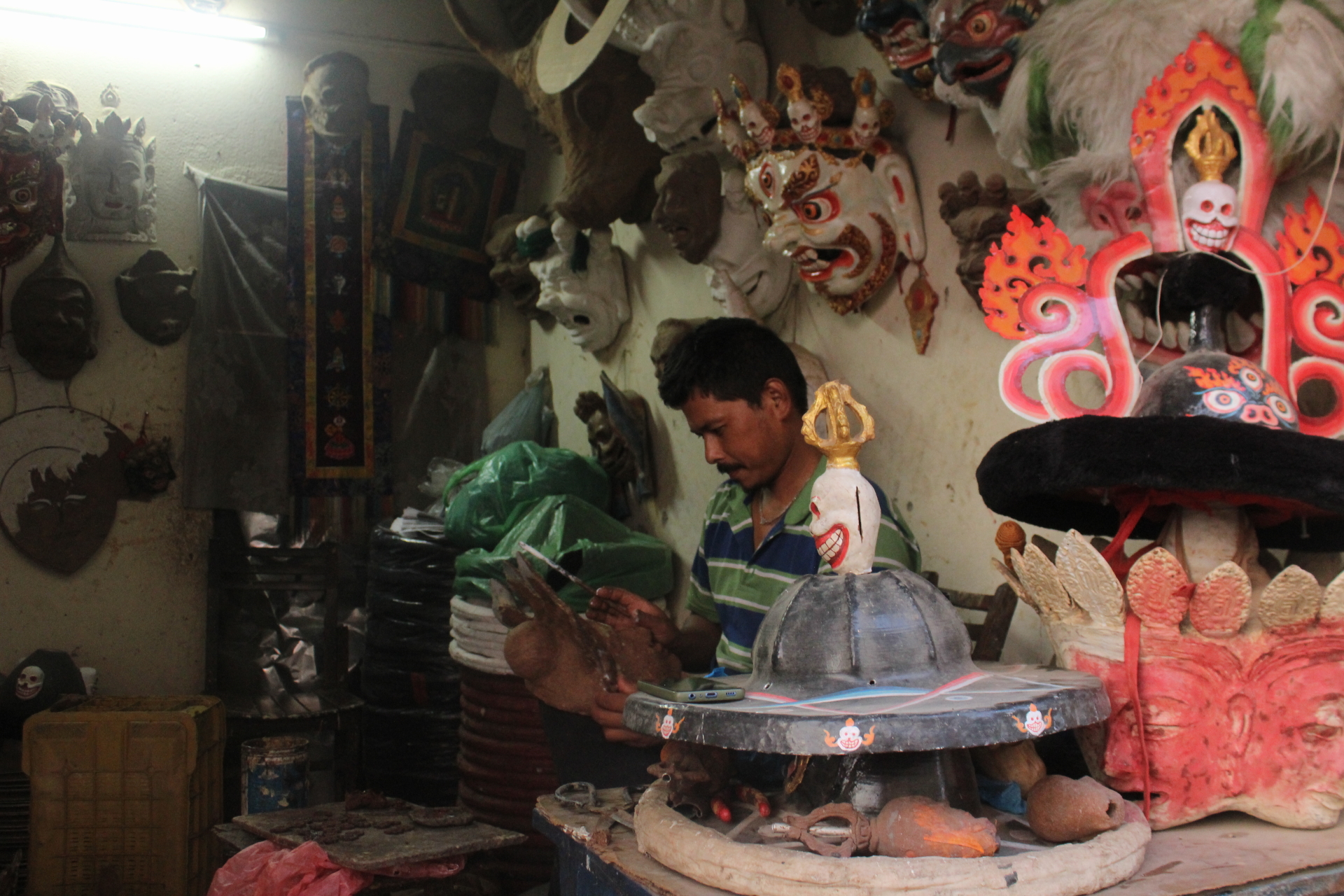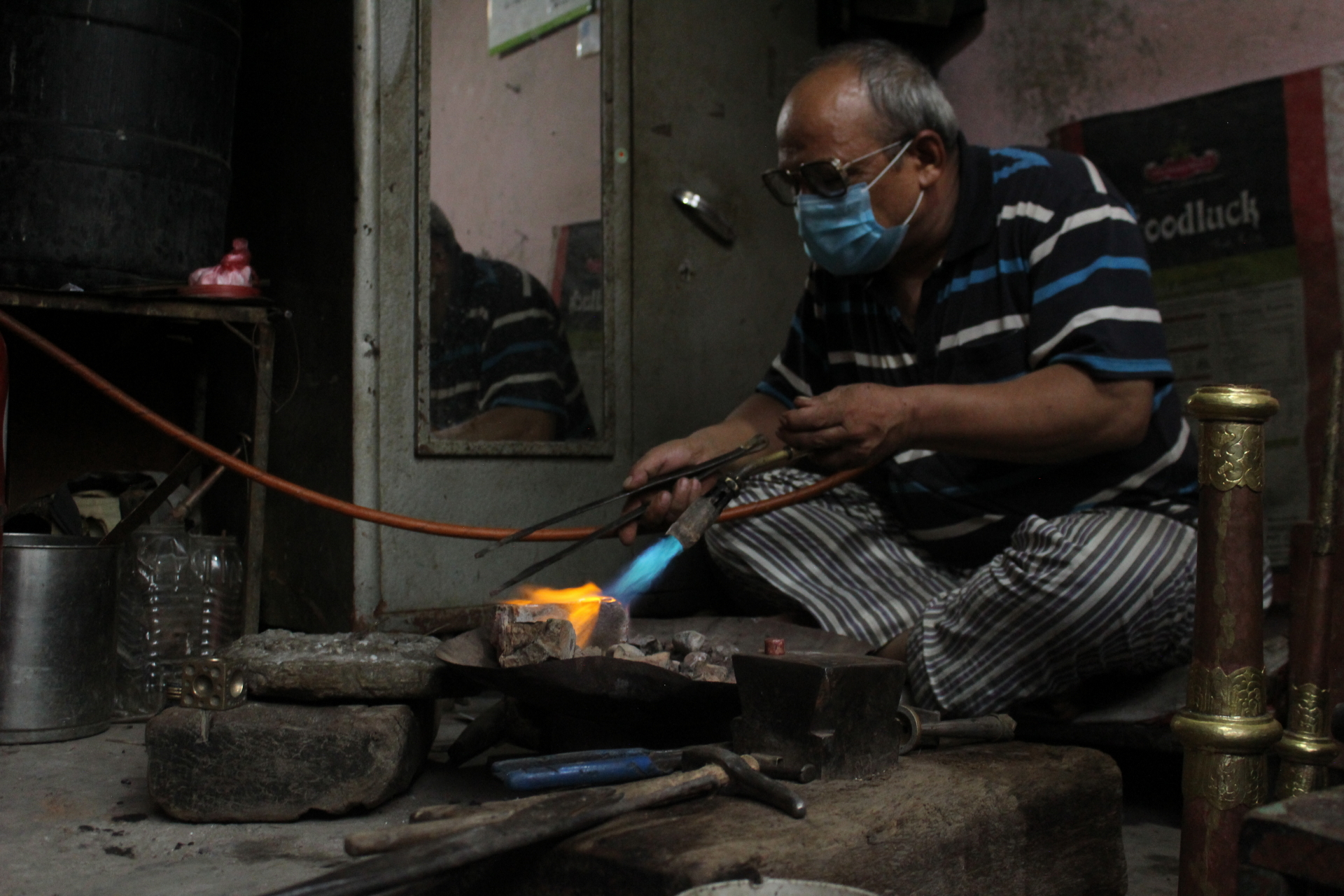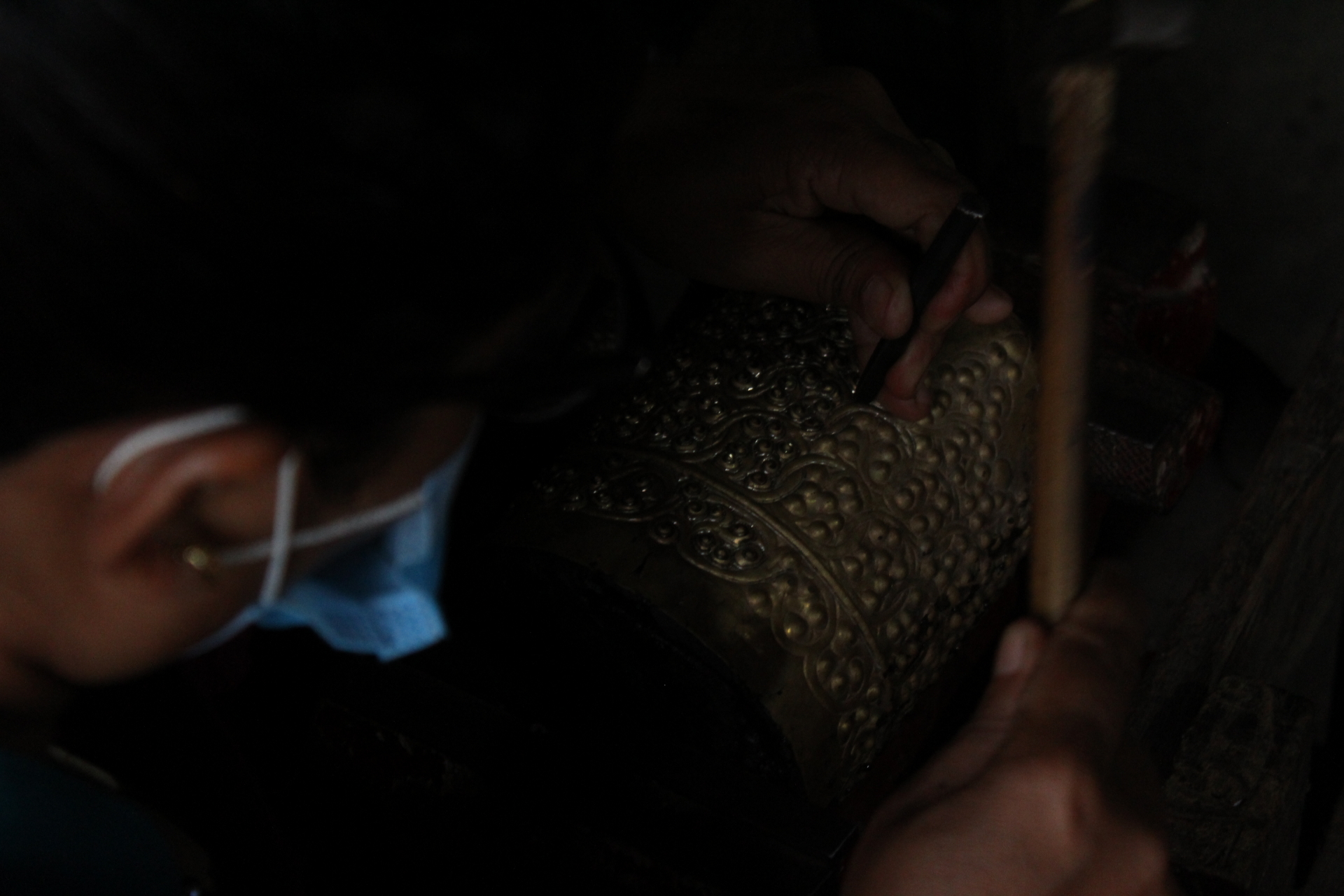KATHMANDU, Sept 18: Nepali handicraft is one of the most exported products of the country. The handicrafts carry a touch of the country’s history and art and are exported across the world. The global handicraft market value was worth Rs 84 trillion in 2020. According to the data maintained by the Trade and Export Promotion Center, Nepal exported handicrafts worth Rs 8 billion in the last fiscal year, 2020/21. Despite the adverse impacts of the COVID-19 pandemic, handicraft exports increased compared to the exports worth Rs 5 billion in 2018/2019.
Although handicraft exports have grown, the days following the second wave of the COVID-19 pandemic have been bleak for the country's economy. As prohibitory orders have been relaxed, local entrepreneurs hope for the economy's revival as soon as possible.
Bishu Shrestha, a local entrepreneur who has been working in the handicraft sector for the past 21 years hopes for the economy to get back to normal soon. He runs a handicraft shop near Teenchuli while his wife runs a grocery store right beside his.
Bringing prosperity through investment in women

“The prices of the wooden masks range from Rs 1000 to 9000,” Shrestha said. With two childrens to look after, Shrestha is worried about the surge of a third wave of the pandemic, which will lead to lockdowns and eventually loss of his business. “I have some very good friends who are also traders working in the handicraft sector. My products have found their market in places like Thamel and other tourist hotspots while some have found their ways to other countries,” he added. “Though the situation is hard, business is still okay for now. Some orders come by and I can say things have been good for me,” Shrestha said.
However, the story is not the same for everyone. Indra BK, a local metal craftsman in his 60s has worked in the handicraft sector all his life. Like Shrestha, he runs his shop with his wife and daughter near Teenchuli. BK comes from the dalit background, the lowest social status in the traditional Hindu caste system, also marked as ‘untouchable’. However, BK finds pride in his work. He learned the skills from his father and continues the family business today.
“I have worked all my life in this sector. I have the talent and the experience but what can one do when a pandemic strikes? My business had to be shut for over a year. However, we started to continue making our products even when there was no order for them, hoping some would come,” BK said, “The lack of market is also a problem. Where does one go to sell one’s products? We have the ability to contribute to the economy but there is no market at present. It has been harder to sell the products than before. We can only hope to survive with whatever we can manage and an end to this pandemic as soon as possible,” he added.
The situation is similar for local entrepreneurs across the country. With the omnipresent risk and regulations in place to control the spread of COVID-19, almost every sector is facing huge losses.










-1200x560_20240810194359.jpeg)


























